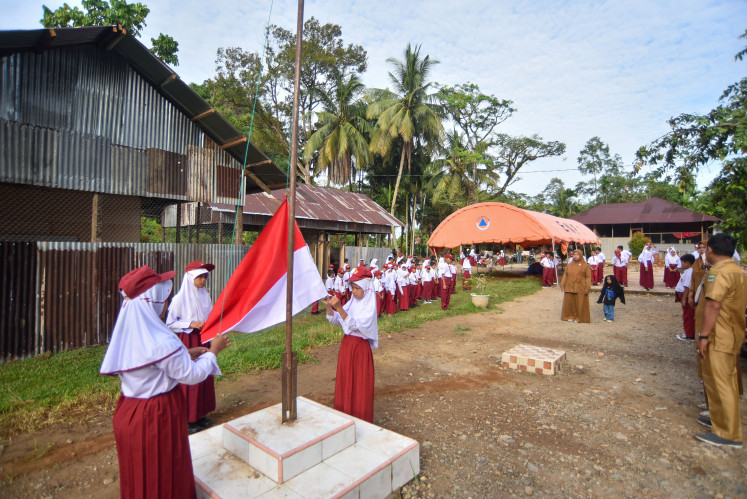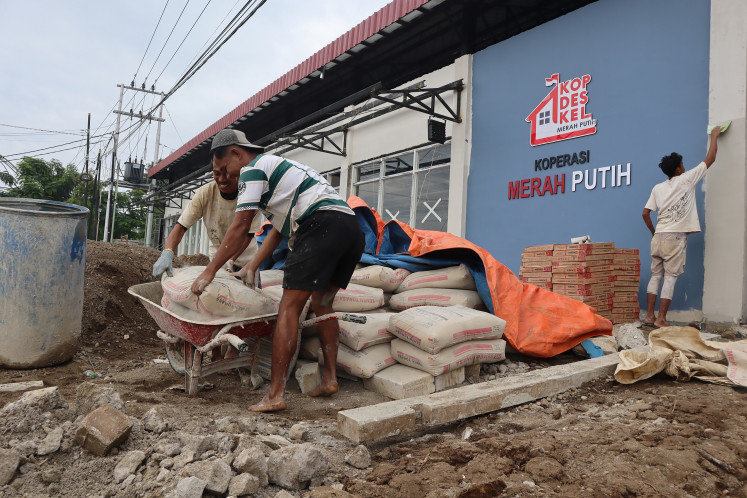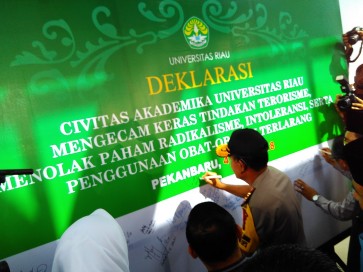Popular Reads
Top Results
Can't find what you're looking for?
View all search resultsPopular Reads
Top Results
Can't find what you're looking for?
View all search resultsIndonesian moderation and ‘Indonesianness’
Change text size
Gift Premium Articles
to Anyone
I
ndonesia recently endured an apparent state of emergency with regard to radicalism, which along with terrorism have become major issues and served as justification for acts to control.
Narratives to watch out for “jihadists”, “caliphate”, “Wahhabists” and others along with various deradicalization policies have filled public spaces.
The subject of mosques, campuses, state-owned enterprises and even early childhood educational institutions being exposed to radicalism, is so openly brought to light in society that it gives rise to a nationwide controversy.
If the concept of radicalism is linked with what was referred to by Omer Taspinar (2015) as “violent movements” like in the various cases of bombings, physical assault and all kinds of violent acts in Indonesia, it can be understood as an objective outlook and reality. Religious radicalism, including that in a small group of Muslims, certainly constitutes an actual social fact.
In such a position, both the government and many components of the nation are committed to jointly rejecting all forms of radical ideas and acts or radicalism that end in violence, treason and disruption of human life and the environment, which are strictly prohibited by God as they belong to fasad fil-ardl (external earth destruction).
Religious radicalism indeed occurs in life as is the case of other forms of radicalism in every part of the world. The stigma of Islamic radicalism is so strong and sometimes borders on Islamophobia, with its complex roots as explained by John Esposito and Iner Deyra (2018).
The social fact is also undeniable with the presence of radical-extremist movements like Hizbut Tahrir, al-Qaeda, Jamaah Islamiyah and various jihadist groups at global, national and local levels that spawn many problems and acts of violence.


















